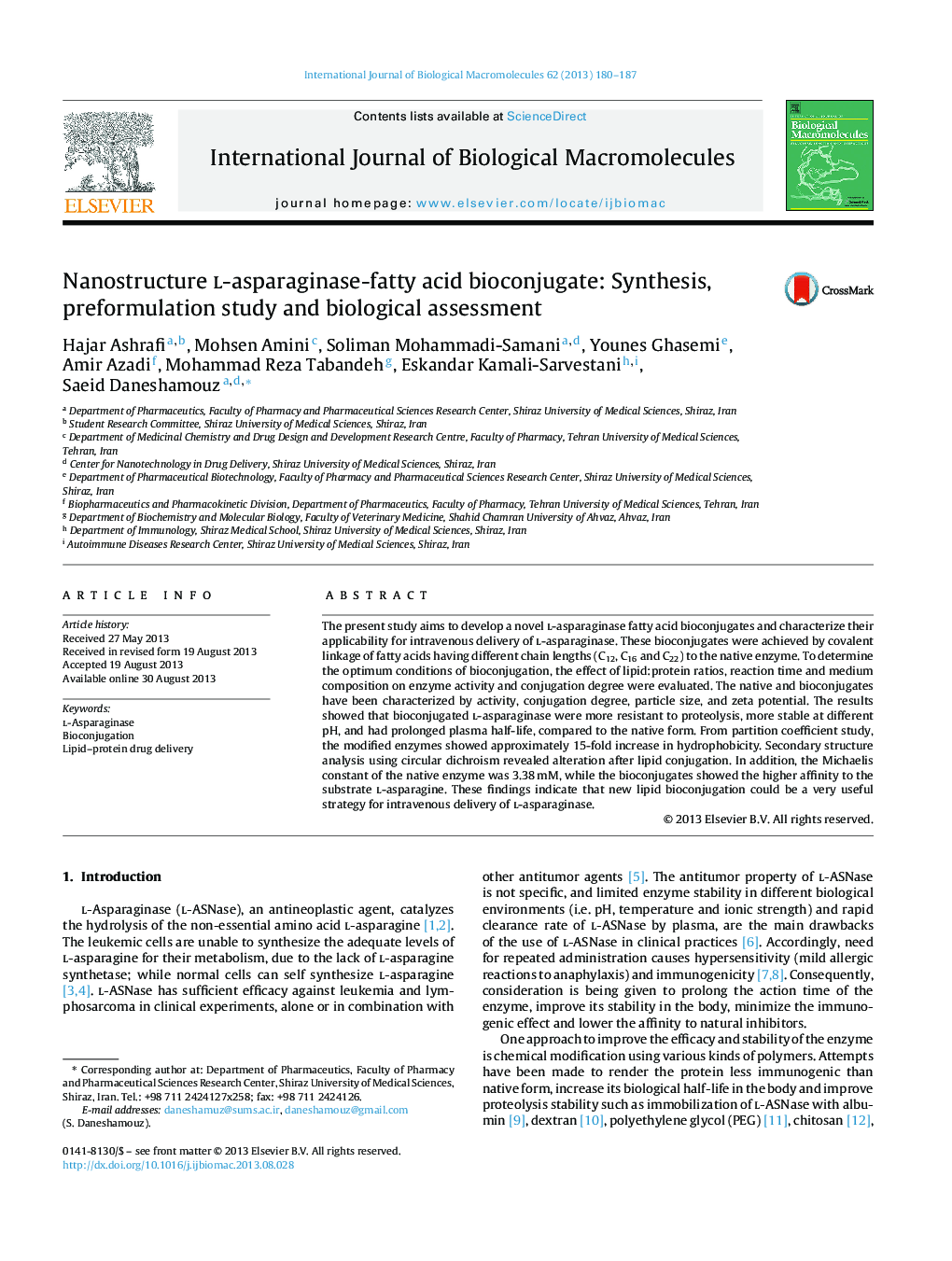| کد مقاله | کد نشریه | سال انتشار | مقاله انگلیسی | نسخه تمام متن |
|---|---|---|---|---|
| 1986899 | 1540258 | 2013 | 8 صفحه PDF | دانلود رایگان |

The present study aims to develop a novel l-asparaginase fatty acid bioconjugates and characterize their applicability for intravenous delivery of l-asparaginase. These bioconjugates were achieved by covalent linkage of fatty acids having different chain lengths (C12, C16 and C22) to the native enzyme. To determine the optimum conditions of bioconjugation, the effect of lipid:protein ratios, reaction time and medium composition on enzyme activity and conjugation degree were evaluated. The native and bioconjugates have been characterized by activity, conjugation degree, particle size, and zeta potential. The results showed that bioconjugated l-asparaginase were more resistant to proteolysis, more stable at different pH, and had prolonged plasma half-life, compared to the native form. From partition coefficient study, the modified enzymes showed approximately 15-fold increase in hydrophobicity. Secondary structure analysis using circular dichroism revealed alteration after lipid conjugation. In addition, the Michaelis constant of the native enzyme was 3.38 mM, while the bioconjugates showed the higher affinity to the substrate l-asparagine. These findings indicate that new lipid bioconjugation could be a very useful strategy for intravenous delivery of l-asparaginase.
Journal: International Journal of Biological Macromolecules - Volume 62, November 2013, Pages 180–187